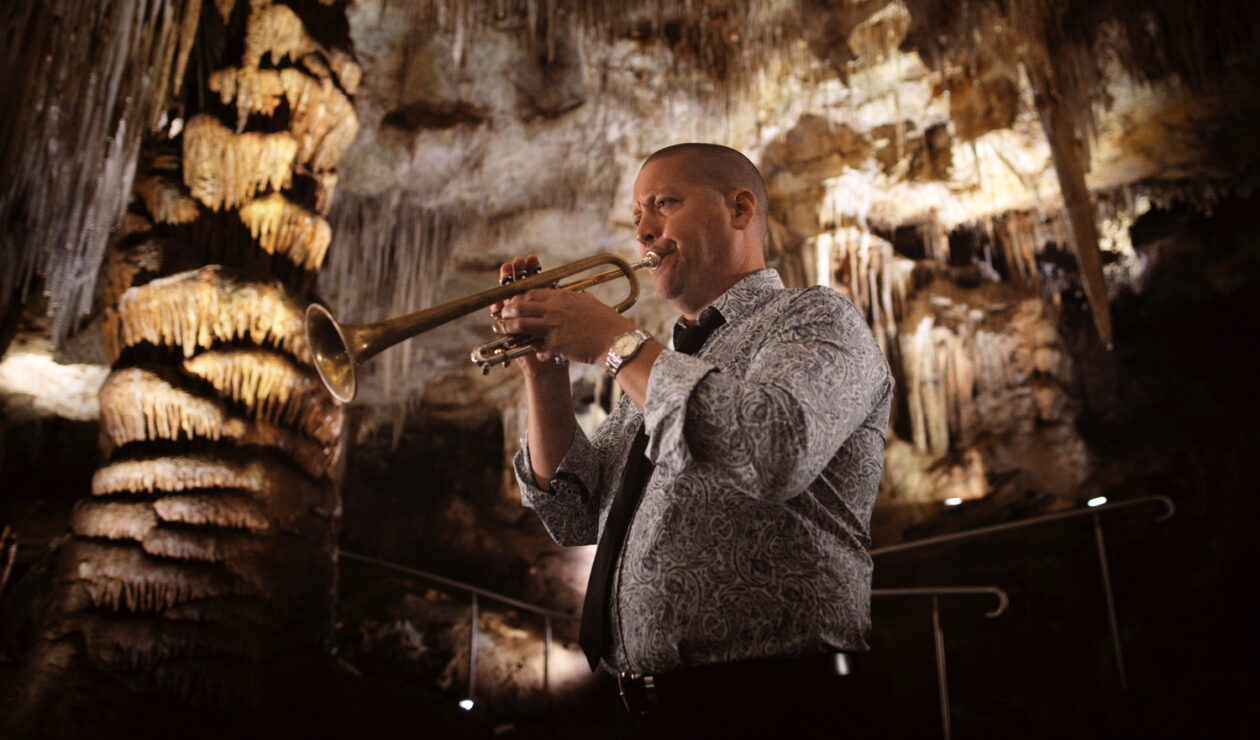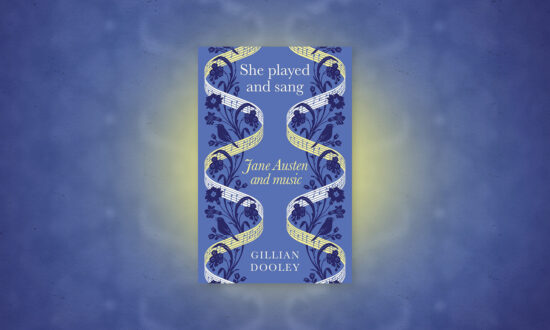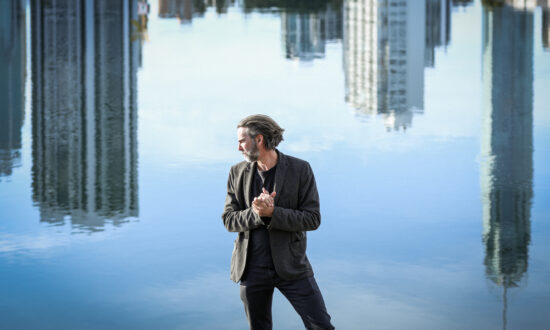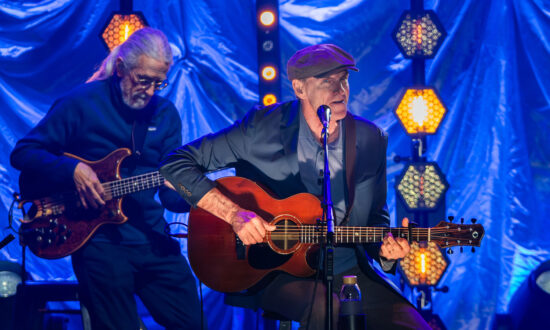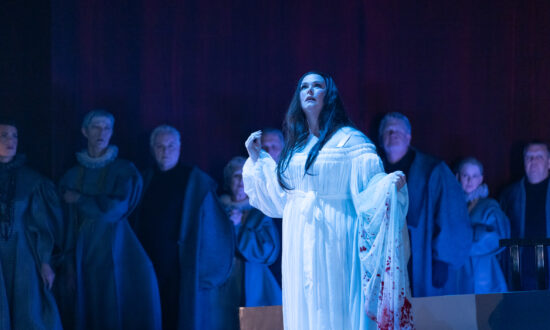As part of its regional and community touring program, the orchestra will present ASO in the Barossa, conducted by Luke Dollman, at the Barossa Arts Centre on August 12, along with a program of free community concerts titled Song and Dance at Strathalbyn, Goolwa and Milang (August 10 and 11) under the baton of Martin Butler.
It says the Barossa program will feature “some of the greatest symphonic works to match the Barossa’s big red reputation”, including Beethoven’s Coriolan Overture and Schubert’s Symphony No 3.
David Khafagi, who had his first experience performing as a soloist with a professional orchestra when he played Haydn’s Trumpet Concerto with the ASO in Mt Gambier earlier this year, will revisit it again in the upcoming concert. Here, Brisbane-born Khafagi explains why he is so excited to play this particular work, and shares an insight into his lifelong musical journey.
I knew I’d make a career in music when…
I wanted to pursue a career in music from a young age. I was always surrounded by classical music as a child, and participated in ensembles from the age of about seven. I’ve always loved performing music – and who wouldn’t want the privilege of doing what they love for a career?
Did you grow up in a musical household?
I have three sisters who are all string players, and as kids we also all had piano lessons. Mum and Dad don’t play music, but Mum was heavily involved in administering the Queensland Youth Orchestra for almost 20 years, and Dad has an encyclopaedic knowledge of classical music. I was one of the kids at school who never knew the words to the pop songs that everyone was into at the time.
Tell us about your musical journey…
I didn’t follow a very orthodox path to my job. In 2004, while I was in Tasmania studying with Yoram Levy (principal trumpet of Tasmanian Symphony Orchestra), I started doing a bit of casual operations work (moving gear, setting up the orchestra, maintenance, etc), which I really enjoyed. Upon returning to Brisbane, I worked as a casual orchestra assistant with the Queensland Symphony Orchestra doing much the same thing. These positions, while not playing, allowed me to be in the orchestral environment, and there was the added benefit of having 24-hour access to the orchestral studios for late-night practice sessions.
In 2007 my wife, Janet, won a Tutti Violin position with the ASO and we moved to Adelaide, where I became ASO operations assistant. I worked in various positions in ASO operations for 12 years, during which time I was regularly called upon to play in the orchestra. I also worked extremely hard over this time to grow as a player and I took part in many auditions all over the country and also in New Zealand, with mixed success…
The audition that I won in 2022 [to become the ASO principal trumpet] was the most important I had ever done. It was a defining moment in my career. To have a principal position in the ASO – the same orchestra as my wife, and an orchestra that I love – in our hometown – is just an absolute dream come true.
How did you and Janet come to meet and fall in love?
Janet and I met in the school choir but didn’t become close friends until university. We did pretty much everything together during uni years and eventually became a couple. We got engaged in 2004 when I was living for a year in Tasmania, and married in 2005 before moving to Munich for a year of further studies.
We love working together. It’s a real privilege to be able to make music together and a lot of our friends are also in the orchestra and administration.
You are raising a young daughter and son – are they musically inclined?
Both our kids, Ella and Billy, receive violin and piano lessons. At this early age, it’s more about fostering a love of music and creativity, rather than pushing them to be brilliant. They also love to sing, and we would like to get them involved in a choir at some point soon.
How important is a musical education?
Musical education is critically important, and I don’t think that it’s given enough emphasis in the education system these days. There is so much evidence to show that music education has benefits across the board, from cognitive development to teamwork and social growth, but it’s a long-term investment in a world in which everyone wants quick results.
Even if you consider the complexity of pop music now compared to the ’60s and ’70s, when there were bands like The Beatles, Led Zeppelin and Deep Purple, the sophistication of music in society in general is going backwards because it’s being churned out in its most simplified form by pop music “factories” for commercialised pop stars.

David Khafagi performs with the ASO. Photo: Adam Johnstone / supplied
How did you choose the trumpet?
When I was very young, all my sisters learnt violin from a teacher whose husband was a trombone player and teacher. I thought that the trombone looked pretty cool, so asked for lessons, but I was too small to hold it, so was started on trumpet. I never looked back.
Is there anything special about your actual instrument?
I have lots of trumpets (12 or so) but there’s nothing particularly special about any of them – certainly no names or anything. Brass instruments, unlike string instruments, deteriorate over time, so they don’t tend to have the same history and emotion attached to them. They’re more a tool of the trade. My B-flat trumpet (which is the standard trumpet that anyone in the community would play) is the same one that my parents bought for me when I was in Year Eight at school.
What piece of music are you most looking forward to playing in season 2023?
I had the huge honour earlier this year of performing Haydn’s Trumpet Concerto with the ASO in Mt Gambier. It was the first time I have performed as a soloist with a professional orchestra, and a highlight of my career so far. I am really looking forward to performing the same concerto with the ASO in Tanunda.
I love travelling to perform in regional areas – as well as the fun of being on tour, we have the opportunity to share music with people who probably don’t get to hear live orchestras that often. It reminds me that music is a gift to be shared with everyone, and not to be taken for granted.
Why is the Haydn Trumpet Concerto so special?
It’s endless joy – probably the quintessential piece for solo trumpet. Every serious student of trumpet studies it, and it appears on every professional trumpet audition as the benchmark of solo repertoire.
I first started learning this concerto when I was about 12 years old and have been trying to perfect it ever since. It’s one of those pieces that, even when all the notes are right, it presents new challenges in phrasing and musicality. It has been performed and recorded so many times that the challenge for me (apart from playing the right notes) is to imbue it with my own personality.

Get InReview in your inbox – free each Saturday. Local arts and culture – covered.
Thanks for signing up to the InReview newsletter.
What do you love about playing with the orchestra?
Everything. I love the music, I love playing trumpet, I love witnessing the power that music can have over the audience, I love being part of the bigger picture, I love the applause, I love the post-concert socialising, I love my colleagues and the soloists and conductors. I love everything about it.
What piece of music never fails to move you?
I went to see the London Symphony Orchestra perform Elgar’s Enigma Variations in Brisbane on the day that I heard someone very close to me had passed away. When the orchestra played the variation, Nimrod, which is famously emotional music anyway, I fell to bits. Every time I hear Nimrod now, I’m taken back to that moment and feel incredibly moved.
Details of ASO in the Barossa and the free Song and Dance community concerts can be found on the ASO website.
Support local arts journalism
Your support will help us continue the important work of InReview in publishing free professional journalism that celebrates, interrogates and amplifies arts and culture in South Australia.
Donate Here
